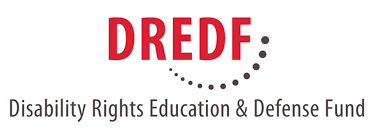
What is the Disability Rights Education and Defense Fund (DREDF)?
The Disability Rights Education and Defense Fund (DREDF) is a prominent national civil rights law and policy center dedicated to protecting and advancing the rights of people with disabilities. Established in 1979 and headquartered in Berkeley, California, DREDF has been a driving force in the disability rights movement. The organization’s mission is to secure the full inclusion of people with disabilities in all aspects of society through legal advocacy, policy development, and education. DREDF’s work has been instrumental in shaping key disability rights legislation and promoting systemic change that benefits millions of individuals with disabilities across the United States.
What Does DREDF Do?
DREDF engages in a wide range of activities aimed at promoting the rights and inclusion of people with disabilities. Some of the core functions and initiatives of the organization include:
Legal Advocacy: DREDF provides legal representation and advocacy to individuals with disabilities facing discrimination and barriers to access. The organization litigates high-impact cases that have the potential to set important precedents and drive systemic change. DREDF’s legal work spans various areas, including education, employment, housing, transportation, and healthcare.
Policy and Legislative Advocacy: DREDF works at the local, state, and federal levels to influence public policy and legislation. The organization has been actively involved in the development and implementation of major disability rights laws, including the Americans with Disabilities Act (ADA) and the Individuals with Disabilities Education Act (IDEA). DREDF continues to advocate for new policies and reforms that promote the rights and inclusion of people with disabilities.
Education and Training: DREDF provides education and training to a wide range of stakeholders, including individuals with disabilities, their families, advocates, policymakers, and service providers. The organization offers workshops, seminars, and resources on disability rights laws, best practices for inclusion, and strategies for effective advocacy.
Technical Assistance: DREDF offers technical assistance to individuals, organizations, and government agencies on disability rights issues. This includes providing guidance on compliance with disability rights laws, developing policies and procedures that promote accessibility, and offering support for implementing inclusive practices.
Community Outreach and Engagement: DREDF engages with the disability community through various outreach and engagement activities. The organization works to amplify the voices of people with disabilities, build coalitions, and foster collaboration among disability rights advocates and allies.
Does DREDF Act as an Advocate for Individuals with Disabilities?
Yes, DREDF acts as a powerful advocate for individuals with disabilities. The organization’s advocacy efforts are focused on ensuring that people with disabilities can fully participate in society and have equal access to opportunities and resources. Some of the ways DREDF advocates for individuals with disabilities include:
Individual Advocacy: DREDF provides direct advocacy and support to individuals with disabilities who are facing discrimination or other barriers. This includes offering legal representation, assisting with filing complaints, and providing information on disability rights laws and protections.
Systems Advocacy: DREDF engages in systems advocacy to address broader issues and systemic barriers that affect people with disabilities. This includes working to change policies and practices that discriminate against people with disabilities and advocating for the implementation of inclusive and accessible systems.
Public Policy Advocacy: DREDF works to influence public policy and legislation to protect and advance the rights of people with disabilities. The organization advocates for the development and enforcement of laws and regulations that promote accessibility, non-discrimination, and equal opportunity.
Community Empowerment: DREDF empowers individuals with disabilities and their families by providing them with the knowledge and tools they need to advocate for their rights. This includes offering training on self-advocacy, providing resources on disability rights, and supporting grassroots advocacy efforts.
Does DREDF Defend People with Disabilities?
DREDF is deeply committed to defending the rights of people with disabilities. The organization’s legal and advocacy efforts are focused on protecting individuals from discrimination and ensuring that they have equal access to opportunities and resources. Some of the ways DREDF defends people with disabilities include:
Litigation and Legal Representation: DREDF litigates cases that address discrimination and violations of disability rights. The organization takes on high-impact cases that have the potential to set important legal precedents and drive systemic change. DREDF’s legal team works to secure favorable outcomes for individuals with disabilities and advance disability rights jurisprudence.
Advocacy and Policy Work: DREDF advocates for policies and legislation that protect the rights of people with disabilities. The organization works to ensure that disability rights laws are enforced and that new policies are developed to address emerging issues and challenges.
Support for Victims of Discrimination: DREDF provides support and resources to individuals who have experienced discrimination. This includes offering legal advice, assisting with filing complaints, and connecting individuals with other resources and support services.
Public Awareness and Education: DREDF works to raise public awareness about disability rights issues and the importance of inclusion and accessibility. The organization engages in public education campaigns, produces informational materials, and participates in events and conferences to promote disability rights and educate the public.
Who is a Famous Advocate for Disability Rights?
One of the most famous advocates for disability rights is Ed Roberts. Ed Roberts was a pioneering leader in the disability rights movement and is often referred to as the father of the independent living movement. He was the first student with severe disabilities to attend the University of California, Berkeley, where he co-founded the Physically Disabled Students Program, which later became the model for independent living centers across the country. Ed Roberts’ advocacy work led to significant advancements in disability rights, including the development of policies and programs that promote independence and inclusion for people with disabilities.
What Do You Call Someone Who Advocates for Disabilities?
Someone who advocates for disabilities is commonly referred to as a disability rights advocate or disability rights activist. These individuals work to promote the rights and inclusion of people with disabilities through various means, including policy advocacy, public awareness campaigns, and community organizing. Disability rights advocates may also engage in legal action to challenge discriminatory practices and ensure the enforcement of disability rights laws.
What is the Biggest Disability in the US?
The most common disability in the United States is mobility-related disabilities. According to the U.S. Census Bureau, approximately 13.7% of adults in the U.S. have a mobility disability, which includes difficulty walking or climbing stairs. This is followed by cognitive disabilities (10.8%), hearing disabilities (5.9%), and vision disabilities (4.6%). Mobility-related disabilities can have a significant impact on an individual’s ability to perform daily activities and participate fully in society, making accessibility and mobility key areas of focus for disability rights organizations like DREDF.
DREDF’s Key Programs and Initiatives
DREDF runs several key programs and initiatives aimed at promoting the rights and inclusion of people with disabilities. Some of these programs include:
Legal Advocacy and Representation: DREDF provides legal representation to individuals with disabilities facing discrimination and barriers to access. The organization litigates high-impact cases that have the potential to set important precedents and drive systemic change.
Policy and Legislative Advocacy: DREDF works at the local, state, and federal levels to influence public policy and legislation. The organization has been actively involved in the development and implementation of major disability rights laws, including the ADA and IDEA.
Education and Training: DREDF provides education and training to a wide range of stakeholders, including individuals with disabilities, their families, advocates, policymakers, and service providers. The organization offers workshops, seminars, and resources on disability rights laws, best practices for inclusion, and strategies for effective advocacy.
Technical Assistance: DREDF offers technical assistance to individuals, organizations, and government agencies on disability rights issues. This includes providing guidance on compliance with disability rights laws, developing policies and procedures that promote accessibility, and offering support for implementing inclusive practices.
Community Outreach and Engagement: DREDF engages with the disability community through various outreach and engagement activities. The organization works to amplify the voices of people with disabilities, build coalitions, and foster collaboration among disability rights advocates and allies.
How DREDF Supports Accessibility and Mobility
Accessibility and mobility are critical issues for people with disabilities, and DREDF is at the forefront of advocating for improvements in these areas. The organization works to ensure that public spaces, transportation systems, and housing are accessible to all individuals, regardless of their physical abilities. Some of the ways DREDF supports accessibility and mobility include:
Advocating for Accessible Transportation: DREDF works to improve transportation options for people with disabilities, including advocating for accessible public transit, ride-sharing services, and pedestrian infrastructure. The organization also supports policies that promote the development of accessible vehicles and transportation technologies.
Promoting Universal Design: Universal design is the concept of creating environments that are accessible to all people, regardless of their abilities or disabilities. DREDF advocates for the adoption of universal design principles in the construction of buildings, public spaces, and consumer products. This includes working with architects, designers, and policymakers to ensure that accessibility is considered in the planning and development process.
Supporting Housing Accessibility: DREDF advocates for policies that increase the availability of accessible and affordable housing for people with disabilities. This includes promoting the inclusion of accessibility features in new housing developments and supporting programs that provide financial assistance for home modifications.
Improving Digital Accessibility: In today’s digital age, accessibility extends beyond the physical world to include online spaces. DREDF works to ensure that websites, mobile apps, and digital content are accessible to people with disabilities. This includes advocating for the implementation of accessibility standards and providing resources for developers and content creators.
The Role of DREDF in Employment Advocacy
Employment is a key area of focus for DREDF, as people with disabilities often face significant barriers to entering and advancing in the workforce. DREDF works to address these challenges through a variety of initiatives aimed at increasing employment opportunities and promoting workplace inclusion. Some of the ways DREDF advocates for employment rights include:
Promoting Inclusive Hiring Practices: DREDF collaborates with employers to promote inclusive hiring practices and create more job opportunities for people with disabilities. This includes providing training and resources on disability awareness, reasonable accommodations, and the benefits of a diverse workforce.
Supporting Job Seekers with Disabilities: DREDF offers programs and resources to help job seekers with disabilities find employment. This includes job fairs, networking events, and career development workshops. The organization also provides information on job search strategies, resume writing, and interview preparation.
Advocating for Workplace Accommodations: DREDF advocates for policies that ensure people with disabilities have access to reasonable accommodations in the workplace. This includes promoting the implementation of the ADA’s provisions related to accommodations and providing guidance to employers on how to create inclusive work environments.
Encouraging Corporate Responsibility: DREDF works with businesses to promote corporate social responsibility and encourage companies to adopt policies and practices that support the inclusion of people with disabilities. This includes recognizing employers who demonstrate leadership in disability inclusion through awards and public recognition programs.
DREDF’s Impact on Education and Youth Development
Education is another critical area where DREDF makes a significant impact. The organization works to ensure that students with disabilities have access to quality education and the support they need to succeed academically. Some of the ways DREDF supports education and youth development include:
Advocating for Inclusive Education Policies: DREDF advocates for policies that promote inclusive education and ensure that students with disabilities have equal access to educational opportunities. This includes supporting the Individuals with Disabilities Education Act (IDEA) and other legislation that protects the rights of students with disabilities.
Providing Scholarships and Grants: DREDF offers scholarships and grants to support the educational pursuits of students with disabilities. These financial resources help students cover the costs of tuition, books, and other educational expenses, allowing them to focus on their studies and achieve their academic goals.
Supporting Transition to Postsecondary Education: DREDF provides resources and guidance to help students with disabilities transition from high school to postsecondary education. This includes information on college admissions, financial aid, and disability services available at colleges and universities.
Promoting STEM Education: DREDF encourages students with disabilities to pursue careers in science, technology, engineering, and mathematics (STEM) fields. The organization offers programs and initiatives that provide mentorship, hands-on learning experiences, and exposure to STEM careers.
The Importance of Healthcare Advocacy by DREDF
Access to healthcare is a fundamental right, and DREDF works to ensure that people with disabilities have access to the healthcare services they need. The organization advocates for policies that address the unique healthcare needs of people with disabilities and promote health equity. Some of the ways DREDF supports healthcare advocacy include:
Promoting Accessible Healthcare Services: DREDF advocates for the accessibility of healthcare facilities, services, and medical equipment. This includes ensuring that healthcare providers are trained to meet the needs of patients with disabilities and that medical offices are physically accessible.
Addressing Health Disparities: DREDF works to address health disparities that disproportionately affect people with disabilities. This includes advocating for research and policies that address the social determinants of health and promote health equity.
Supporting Mental Health Services: DREDF recognizes the importance of mental health and advocates for access to mental health services for people with disabilities. This includes promoting policies that increase funding for mental health programs and support the integration of mental health services into primary care.
Advocating for Inclusive Health Insurance Policies: DREDF works to ensure that health insurance policies do not discriminate against people with disabilities. This includes advocating for coverage of essential health benefits, reasonable accommodations, and the elimination of discriminatory practices in health insurance underwriting.
Building a Strong Community Through DREDF
Community engagement is at the heart of DREDF’s mission. The organization works to build strong, inclusive communities where people with disabilities can thrive. Some of the ways DREDF fosters community engagement include:
Organizing Community Events: DREDF organizes events that bring together people with disabilities, their families, and allies to celebrate disability culture and promote inclusion. These events provide opportunities for networking, learning, and community building.
Supporting Grassroots Advocacy: DREDF empowers individuals and local organizations to advocate for disability rights in their communities. This includes providing training, resources, and support for grassroots advocacy efforts.
Promoting Volunteerism: DREDF encourages volunteerism and community service among people with disabilities. The organization connects individuals with volunteer opportunities that match their skills and interests, allowing them to contribute to their communities and gain valuable experience.
Celebrating Disability Culture: DREDF celebrates disability culture through various initiatives that highlight the achievements and contributions of people with disabilities. This includes recognizing Disability Pride Month and promoting disability art, literature, and media.
Conclusion
The Disability Rights Education and Defense Fund (DREDF) is a vital organization that works tirelessly to protect and advance the rights of people with disabilities. Through its legal advocacy group, policy initiatives, and education programs, DREDF strives to create a more inclusive society where people with disabilities have equal access to opportunities and resources. Whether through advocating for accessible transportation, promoting inclusive education policies, or supporting employment opportunities, DREDF’s impact is far-reaching and profound. By empowering individuals with disabilities and advocating for their rights, DREDF is helping to build a world where everyone can live, learn, work, and participate fully in society.
For more information about DREDF and its programs, visit their website.
.png)





